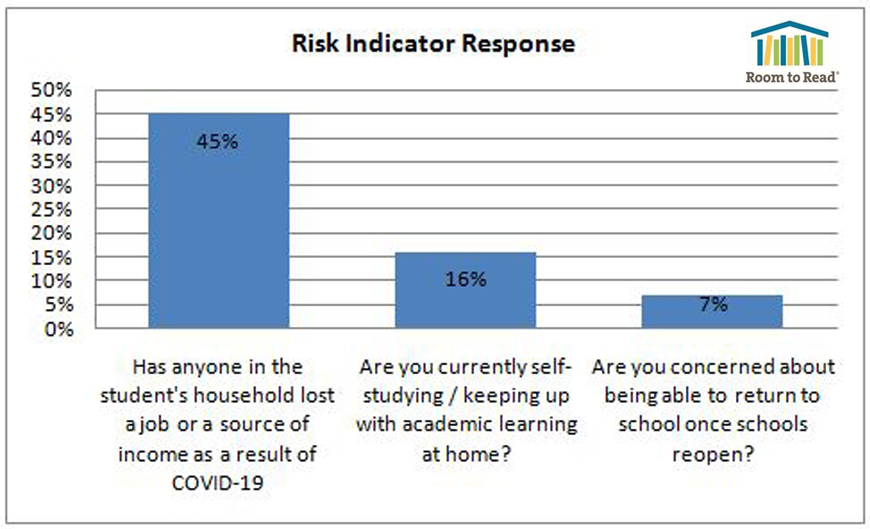Half of Nepal’s girls may drop out of school

With schools closed for the past five months, and families losing their livelihoods due to the pandemic, many girl students across Nepal are helping their parents and may not rejoin schools once they reopen, a new survey has shown.
Some of the girls, especially from poorer families, have been lured into seeking jobs, and some have even fallen prey to labour and sexual exploitation, the survey by the Room To Read literacy group has shown.
The Girls’ Education Risk Survey among 3,992 girls in four districts from April-June this year showed that financial hardship caused by the pandemic may push back Nepal’s gains in improving its female school enrolment.
During the COVID-19 lockdown there has also been an increase in domestic violence against female members of households, and Room To Read itself has lost some of its students to child marriage.
“Keeping girls at school was already a difficult task, but this pandemic is keeping them away from school and is putting them at a higher risk,” explains Salina Tamang at Room to Read Nepal.

This survey included three indicators for identifying risk of not returning to school: girls not studying at home while their schools are closed, a loss of job or income in the household, and a girl’s stated concern that she will not be able to return to school.
Of the nearly 4,000 girls surveyed in Banke, Bardia, Nuwakot and Tanahun districts through June, 45% of girls reported their household income had fallen because members had lost their jobs -– a factor that has lead girls to drop out of school even before this crisis.
Another 16% of the girls surveyed said they had stopped studying at home since school closed in March, meaning they will be hesitant to return to school or will have difficulty catching up and passing important gate-keeping exams when they do return.
Of those surveyed, 7% admitted that they would probably not return to school when it reopens. The reasons include the need to work or provide care at home, lack of parental support, and limited financial resources. (See chart).

One 17-year-old surveyed in Banke district had left for Kathmandu in a truck when the lockdown began to find a job to augment her family income. But she fell into drug addiction, and had to be rescued.
“We were monitoring her because she had attended one of our awareness programs against sexual exploitation. Which is why she knew how to save herself when she fell into bad company,” says Ram Pyari of Room To Read.
Another 15-year-old from Kohalpur lost her father just before the lockdown started, increasing the responsibility to take care of her mother and three smaller siblings. She decided to drop out of school to take care of her family.
“We are trying to find a way for her to continue her education, while managing her family’s needs,” explains Rachana Chaudhary of Room To Read in Kohalpur, who has been counseling the girl. “However dire the situation, a girl’s education should not stop.”
The Nepal survey was part of a series conducted by Room to Read among 28,000 school-going girls in India, Bangladesh, Vietnam, Laos, Cambodia andTanzania during pandemic lockdowns. The results were similar to Nepal – 49% of the girls were found to be at risk of not returning to school.
“We were very concerned about the impact on education of girls from low income families, and we need to develop strategies to retain them in school,” says Pushkar Lal Shrestha, Nepal Country Director at Room to Read.
Most of the girls interviewed for the survey were involved in domestic chores and did not have access to remote learning. Figures from another survey by UNICEF in May confirmed some of these finding. It showed that more than half the families reported a loss of jobs or earnings, with one-third facing food shortages.
The UNICEF poll also showed that children in 95% of families had stopped going to school, and 52% were not even studying at home, with only 12% attending classes online or by radio/tv.
Room To Read has been conducting remote learning classes as well as mentoring sessions with girls to keep them safe and motivated. Counselors sent keep in touch with their students through SMS or social media.




